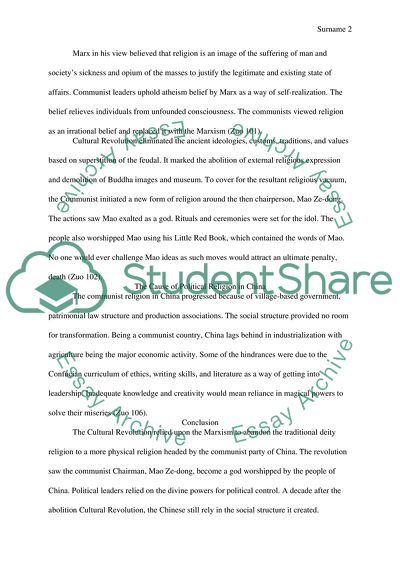Emergence of Political Religion - Chinese Cultural Revolution Marked b Term Paper. https://studentshare.org/social-science/1871958-political-religionthe-case-of-culture-revolution-in-china
Emergence of Political Religion - Chinese Cultural Revolution Marked B Term Paper. https://studentshare.org/social-science/1871958-political-religionthe-case-of-culture-revolution-in-china.


